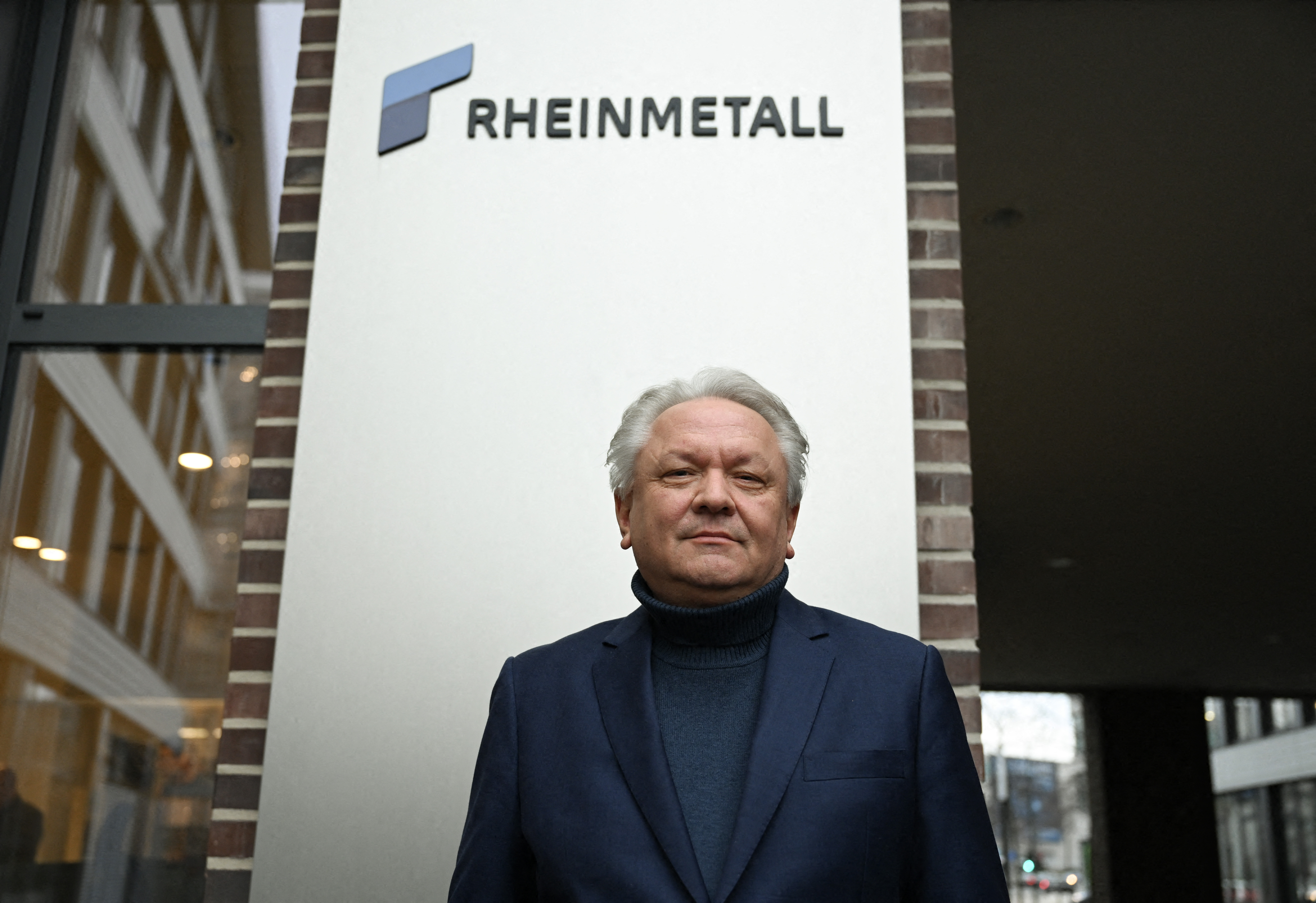Russia tried to assassinate CEO of German arms firm sending weapons to Ukraine, reports say

WASHINGTON (Reuters) -U.S. intelligence discovered that Russia planned to assassinate the chief executive of German arms manufacturer Rheinmetall which has been producing artillery shells and military vehicles for Ukraine, CNN and the New York Times reported on Thursday.
The plot to kill Rheinmetall CEO Armin Papperger was one of a series of Russian government plans to assassinate defense industry executives across Europe who were supporting Ukraine’s war effort, CNN reported, citing five unidentified U.S. and Western officials as saying the plot was discovered earlier this year.
The U.S. informed Germany, the report said, adding that German security services were able to protect Papperger.
German Chancellor Olaf Scholz declined to comment on the report when asked about it during a press conference at the NATO summit in Washington, adding that the government was highly aware of the numerous threats to which it was exposed.
Rheinmetall said in a statement that “necessary measures are always taken” in regular consultation with security authorities.
The Russian embassy in Washington and the Kremlin were not immediately available for comment.
The New York Times cited multiple Western officials in its report while the Financial Times also reported on the plot, referencing NATO diplomats.
Rheinmetall, one of the world’s biggest producers of artillery and tank shells, began ramping up production after Russia’s 2022 invasion of Ukraine.
In May 2023, it said it had set up a joint venture with Ukrainian state-owned conglomerate Ukroboronprom to build and repair tanks in Ukraine.
Russia’s former President Dmitry Medvedev, a close ally of current President Vladimir Putin, said Russia would retaliate by hitting any facility Rheinmetall set up in Ukraine.
In February, Rheinmetall announced that it also planned to open an ammunition factory in Ukraine.
VIGILANT
Two months on, Papperger – who has been with Rheinmetall for 34 years, including more than 11 years as CEO – made headlines when his garden house was set on fire by what tabloid newspaper Bild said were far-left activists.
Italy’s Leonardo, which last week formed a joint venture with Rheinmetall to produce tanks, has no plans to increase security measures for its executives, a source with knowledge of the matter said.
Asked about the CNN report at the current NATO summit in Washington, German Foreign Minister Annalena Baerbock said Russia was waging a hybrid war of aggression, including cyberattacks and sabotage of infrastructure.
“This underlines once again that we as Europeans must protect ourselves as best we can and not be naive,” she said.
NATO Secretary-General Jens Stoltenberg, in response to a question on the CNN report, said he had seen a Russian campaign of hostile acts against NATO which he said only led to allies stepping up support for Ukraine.
A spokesperson for Germany’s Interior Ministry declined to comment on the CNN report, adding that the government was generally taking the threats posed by Moscow very seriously.
“Our security authorities are very vigilant and act accordingly, in close cooperation with our international partners,” the spokesperson said. “The federal government will not be intimidated by the Russian threats. We will continue to do everything in our power to prevent possible threats in Germany.”
Germany’s domestic intelligence services declined to comment.
When asked about the CNN report, a spokesperson for Rheinmetall peer Saab declined to comment, saying only that as a defense company it always had “preparedness and routines to protect the business and our employees.”
(Reporting by Jasper Ward in Washington and Ismail Shakil in Ottawa; additional reporting by Andreas Rinke in Berlin, Matthias Inverardi in Duesseldorf, Christoph Steitz in Frankfurt, Josephine Mason in London, Alvise Armellini in Rome, Costas Pitas in Los Angeles, Niklas Pollard in Stockholm and Sabine Siebold in Washington; Editing by Rosalba O’Brien and Matthew Lewis)







